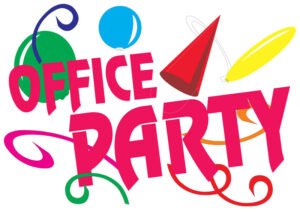As we turn the corner into a brand new year, there are many new laws that Illinois has enacted which will impact the employment law landscape. These new laws will change many of the things that might have been taken for granted or not even been on the radar of most employers and employees. As your trusted legal advisor when it comes to the keeping you at the forefront of the legislative developments, we have compiled a quick synopsis of how things are going to change in 2020.
- Cannabis Regulation and Tax Act: Effective January 1, 2020, Illinois will be joining 11 other States to legalize recreational marijuana. Under the Cannabis Regulation and Tax Act (the “Act”), adults (21+) will be allowed to possess and consume certain amounts of marijuana (30 grams). There are limitations on where this use and consumption can take place. The Act expressly permits employers to enforce a “zero tolerance” policy for cannabis and does not require an employer to permit an employee to be under the influence of cannabis in the workplace or while performing job duties while on call. According to the Act, an employer may consider an employee to be “impaired” or under the influence of marijuana if the employer has a “good faith belief” that an employee:
“Manifests specific, articulable symptoms while working that decrease or lessen the employee’s performance of his/her duties or tasks, including symptoms of the employee’s speech, physical dexterity, agility, coordination demeanor, irrational or unusual behavior or negligence/carelessness in operating equipment or machinery.”
“Demonstrates a disregard for the safety of one’s self or others, or involvement of any accident that results in damages to equipment or property;”
“Creates a disruption of a production or manufacturing process or carelessness that results in injury to the employee or other.”
In the event that an employer decides to discipline an employee for being under the influence of marijuana at work the Act requires that the employer offer the employee a reasonable opportunity to contest the basis of the determination. The employer may then make a final determination on whether to issue discipline once the employee provides an explanation but the employer must still have a “good faith belief” that the employee reported to work under the influence if the employer decides to discipline. The problem for employers will be that cannabis is detectible in a person long after the consuming individual is impacted by the substance, which makes drug testing an unreliable mechanism for detecting inappropriate marijuana use for current employees.
- Amendments to the Illinois Human Rights Act: The Illinois Human Rights Act is the set of laws and remedies for individuals who believe they may have been discriminated by their employer. Under the new amendments, more employers are now subject to the Act’s provisions. Here are just a few of the key provisions that employers must keep I mind in 2020:
- Beginning January 1, 2020, every Illinois employer must provide annual sexual harassment training for all employees;
- Effective January 1, 2020. non-employees (i.e. independent contractors or consultants) are now able to bring actions against an employer for alleged discriminatory conduct;
- Beginning July 1, 2020, rather than applying to employers with 15 or more employees, the Illinois Human Rights Act will now cover all employers with one or more employees in Illinois during 20 or more calendar weeks.
- Also, effective July 1, 2020, employers must self- disclose to the Illinois Department of Human Rights the total number of adverse judgments or administrative rulings against the employer, broken down by protected characteristics.
- Changes to the Overtime Salary Range: As you may recall from the many posts Boznos Law has made on this subject, the original overtime level of pay was set at $433/week ($23,660 annually). This level of pay applies to administrative professionals, executives and professionals. As long as an employee performed certain defined job tasks and was paid at least $23,660 a year, they were considered “exempt” from the overtime laws. Now, the Department of Labor has issued new guidelines for overtime pay that are likely to withstand challenge. Effective January 1, 2020, the new overtime salary threshold will increase to $684/week or $35,568 annually. The final rule also allows employers to use non-discretionary bonuses and incentive payments, paid at least annually, to satisfy up to 10% of the salary threshold.
- Changes to the Illinois Minimum Wage Rates: The current minimum wage for non-tipped employees in the state of Illinois stands at $8.25 per hour. Those rates are going up! This is in response to legislation passed last year to address low wages in Illinois and the drive to reach $15.00 per hour minimum wage. Below is a chart which employers should bear in mind as time goes by:
Date: Minimum Wage
Effective 1-1-2020 $9.25
Effective 7-1-2020 $10.00
Effective 1-1-2021 $11.00
Effective 1-1-2022 $12.00
Effective 1-1-2023 $13.00
Effective 1-1-2024 $14.00
Effective 1-1-2025 $15.00
Notably, the legislation also increased the minimum wage for non-tipped workers under 18 years of age, who historically had a slightly lower rate requirement in Illinois. Beginning January 1, 2020, a worker who is under 18 must receive the standard minimum wage if he or she performs duties for more than 650 hours during any calendar year. For employees under 18 with hours below 650 in a calendar year, the legislation sets specific rates that will also increase gradually over the next six years.
Under the new law, there is some relief for smaller employers. The new law does include a tax credit for small employers (50 or fewer full time employees) that will be able to claim a tax credit equal to 25 percent of the increased wages paid between January 1, 2020, and December 31, 2020, for those employees working 90 or more consecutive days.
In July of 2020, the minimum wage for non-tipped employees in the City of Chicago will also change. Currently the rate is $13.00 per hour. The new rate will be calculated in accordance with the Consumer Price Index (“CPI”). If the CPI rises above 2.5%, then the increase shall be capped at 2.5%. Similarly, employers in Cook County municipalities that did not opt out of the minimum wage ordinance must pay hourly non-tipped employees at least $12.00 per hour, and will face the same CPI increases in 2020.
- New Blood or Organ Donor Leave Protections: Effective January 1, 2020, Illinois employers must be wary not to retaliate or take any employment related actions against employees who request time off or take leaves of absence related to organ donation. This is an amendment to the Living Donor Protection Act (the “Act”) and was signed by Governor Pritzker on August 2, 2019. Under the Act, an employee is allowed to take leaves of up to 30 days in a 12 month period for bone marrow or organ donation, up to one hour for blood donation, and up to 2 hours for platelet donations. Employees are required to request the time off in advance. Significantly, employers may NOT require employees to use accumulated sick time or vacation pay before being eligible for organ donation leave. The Act also amends the Illinois Insurance Code by making it unlawful to refuse to insure or limit coverage for life, disability, or long term care coverage or charge a different rate for the same coverage, solely because the insured is a living organ donor.
- New Protections for Hotel and Casino Employees: Effective July 1, 2020, certain employers in the hospitality and casino industries will be required to:
- Equip employees with personal safety and notification devices; and
- Expressly inform employees about the protections against sexual harassment and discrimination under both federal and state laws; and
- Take measures to separate employees from offending guests and accommodate legal protection against offending guests.
- Expansion of Rights under the Illinois Victims Economic Security and Safety Act (VESSA): Illinois VESSA allows unpaid protected leave to certain employees who are victims of domestic violence, sexual violence and stalking. Effective January 1, 2020, VESSA has been expanded to allow protection for a new category for victims of “gender violence”.
- Artificial Intelligence Video Interview Act: Effective January 1, 2020, employers must obtain consent from applicants before using artificial intelligence to evaluate an applicant’s video interview and qualifications for a position. The consent must (1) notify the applicant before the interview that artificial intelligence may be used to analyze the applicant’s video interview and fitness for the position; and (2) explain how artificial intelligence works and the general types of characteristics it uses to evaluate applicants. The new law prohibits employers from sharing video interviews except in limited circumstances and requires that videos must be deleted within 30 days of the receipt of an employee’s request.
- Workplace Transparency Act Governing Employment Related Agreements: Effective January 1, 2020, sweeping laws will be imposed on an employer’s ability to use employment policies or agreements intended to prevent an employee from reporting sexual harassment, such as non-disclosure agreements, arbitration clauses and non-disparagement clauses for matters involving discrimination, harassment and retaliation. No such agreement can prevent an applicant, employee or former employee from reporting unlawful or criminal conduct to a government agency. Also, a mandatory arbitration provision is void if it a compulsory, unilateral condition of employment or continued employment. Finally, strict confidentiality in any settlement or severance agreement is only valid IF: the provision is expressly preferred by the individual, expressly allows the individual to have the document reviewed by their attorney; valid consideration is provided; there is no waiver of claims following the effective date; and it provides 21 days for the individual to consider the agreement and 7 days to revoke signature after execution (regardless of age.)
As you can see, there are a number of new laws passed over the course of the last year taking effect which can dramatically affect the employment relationship. Only a law firm that concentrates in employment related matters can help guide you through this minefield. With over 36 years’ experience in advising employers and employees on workplace issues, let Boznos Law work with you to ensure you are ready to meet the challenges posed by the changes to the employment laws. Call Bill Boznos today at (630) 375-1958 or contact us at www.boznoslawoffice.com/contact-us through our website.


